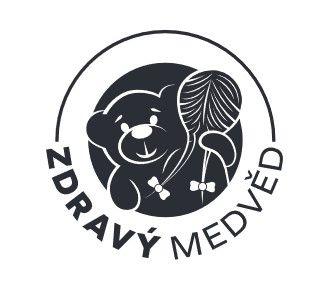Vitamin B12
Synonym: cobalamin
Characteristics: B12 is a water-soluble vitamin that occurs naturally in some foods, is available as a dietary supplement and prescription drug. Because vitamin B12 contains the mineral cobalt, compounds with vitamin B12 activity are collectively called "cobalamins." Vitamin B12 is essential for the development, myelination and function of the central nervous system, the formation of healthy red blood cells and DNA synthesis. Vitamin B12 functions as a cofactor for two enzymes. Methionine synthase catalyzes the conversion of homocysteine into the essential amino acid methionine, which is essential for the formation of DNA, RNA, proteins, and lipids. The second enzyme is important for the formation of short-chain fatty acids.
Absorption: Vitamin B12 is bound to protein in food and must be released before it can be absorbed. Stomach acid releases protein-bound cobalamin. It then immediately binds to glycoproteins, which protect it from denaturation (loss of function). When the stomach contents reach the duodenum, these complexes are partially broken down by pancreatic enzymes. Cobalamin is released to bind to intrinsic factor (glycoprotein), which is secreted by the parietal cells of the gastric mucosa. This complex is then absorbed in the terminal ileum and transported to the cells, where it performs its metabolic function, or to the liver, where it is stored until needed. Absorption via intrinsic factor is limited to approximately 1.5–2.0 µg/meal due to limited receptor capacity. If vitamin B12 is added to fortified foods and dietary supplements, it is already in free form and therefore does not require a separation step.
Dietary supplements: Vitamin B12 is available in multivitamin supplements, in supplements containing other B-complex vitamins, and in supplements containing only vitamin B12. Multivitamin/mineral supplements usually contain vitamin B12 in doses of 5 to 25 µg. In supplements containing vitamin B12 with other B-complex vitamins, the amount of B12 is higher, generally 50-500 µg, and even higher, typically 500-1000 µg, in supplements containing only vitamin B12. The most common forms of vitamin B12 in dietary supplements are cyanocobalamin, adenosylcobalamin, methylcobalamin, and hydroxycobalamin, with no difference in absorption between them. At doses (less than 1–2 µg), which do not exceed the binding capacity of the intrinsic factor, about 50% is absorbed, at doses above 1–2 µg, the absorbability is significantly reduced. For example, absorption is only about 2% at 500 µg doses and 1.3% at 1000 µg doses. In addition to oral dietary supplements, vitamin B12 is available in sublingual preparations such as tablets or lozenges. There is no difference in effectiveness between the oral and sublingual forms. The bioavailability of vitamin B12 from dietary supplements is about 50% higher than from food sources.
Natural sources: Vitamin B12 occurs naturally in foods of animal origin, including fish, meat, poultry, eggs, and dairy products. The bioavailability of vitamin B12 appears to be about three times higher in dairy products than in meat, fish, and poultry. In addition, fortified breakfast cereals and fortified nutritional yeast are readily available sources of vitamin B12 that have high bioavailability.
Effect: Vitamin B12 is necessary for the normal function of all cells. It influences the growth and division of cells, the metabolism of carbohydrates, lipids, proteins and participates in the synthesis of fatty and nucleic acids. It participates in the production of red blood cells in the bone marrow. Some studies have shown that supplementation may be helpful for HIV and AIDS, depression, tinnitus (ringing in the ears), diabetic retinopathy, sleep disorders, and cognitive (brain) disorders.
Deficiency: Causes of vitamin B12 deficiency include difficulty absorbing vitamin B12 from food, intrinsic factor deficiency, gastrointestinal surgery, and long-term use of certain medications. Vegans, who do not consume any animal products, and vegetarians, who consume some animal products (e.g., dairy, eggs, or both) but do not eat meat, have a higher risk of developing vitamin B12 deficiency because natural sources of vitamin B12 are limited to animal foods. Exclusively breastfed children of women who do not consume any animal products may have very limited stores of vitamin B12 and may develop vitamin B12 deficiency. Undetected and untreated vitamin B12 deficiency in infants can result in neurological damage, failure to thrive, delayed development and anemia. Vitamin B12 deficiency is common in the elderly, estimated to be up to 43%. Poor vitamin B12 status is associated with vascular disease, depression, impaired cognitive performance, and dementia. In general, a deficiency manifests as megaloblastic anemia, a low number of white and red blood cells and platelets. Glossitis (inflammation) of the tongue, fatigue, palpitations, pale skin, dementia, weight loss and infertility occur. Neurological changes such as numbness and tingling in the hands and feet may also occur. Because the body stores about 1 to 5 mg of vitamin B12 (or about 1,000 to 2,000 times the amount usually consumed in a day), it may take several years for symptoms of vitamin B12 deficiency to appear.
Recommended daily dose: adult: 2.4 mg for men, 2.4 mg for women (2.6 mg during pregnancy, 2.8 mg during breastfeeding).
Adverse effects: not described
Interactions: Omeprazole, lansoprazole, and other drugs used to treat gastroesophageal reflux and peptic ulcers may interfere with the absorption of vitamin B12 from food. These drugs reduce the release of stomach acid into the stomach and can cause vitamin B12 deficiency. Metformin (a diabetes drug) can reduce the absorption of vitamin B12 and thus significantly reduce its serum concentrations. Carbamazepine (therapy for epilepsy) and colchicine (therapy for gout) can also lower B12 levels.
Pregnancy: considered safe.
Breastfeeding: safe in usual doses.
Toxicity: Even in high doses, vitamin B12 is generally considered safe because the body does not store excess amounts.
Vitamin B12
Chat with us on WhatsApp



